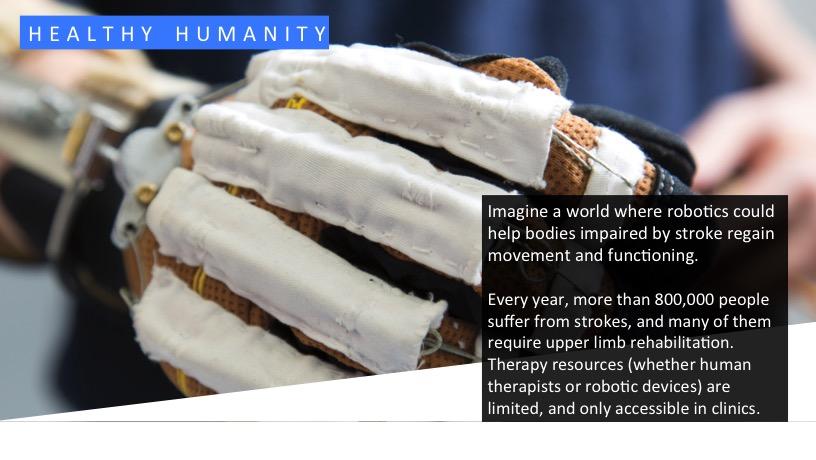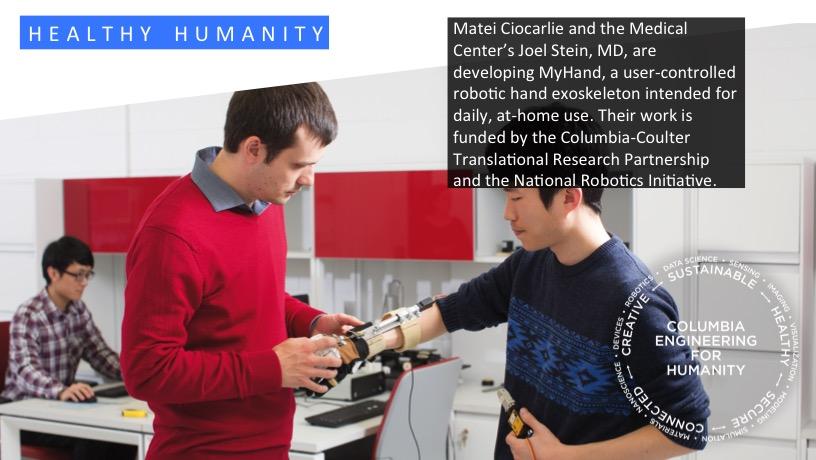Matei Ciocarlie
ASSOCIATE PROFESSOR OF MECHANICAL ENGINEERING
220 S.W. Mudd
Mail Code: 4703
Matei Ciocarlie works on robotics, looking to discover how artificial mechanisms can interact with the world as skillfully as biological organisms. His main interest is to build robots that can operate in new, unforeseen situations, expressing intelligence through physical interaction with their environment. Examples include robotic manipulators that can handle clutter similar to what can be expected in a typical home, wearable robotic rehabilitation devices that patients can use as they go about their daily life, and teleoperated robots that simplify the operator’s job by using their own sense of the surrounding environment. He seeks to apply advances in these areas in field as diverse as manufacturing, logistics, and healthcare.
Research Interests
Robotic hand designs and control, autonomous and Human-in-the-Loop mobile manipulation, shared autonomy, teleoperation, and assistive roboticsCiocarlie’s work looks at mechanism and sensor design, control, planning and learning for robots aiming to perform complex tasks in the real world, spanning both hardware and software. These areas are intimately interrelated and often developed in concert; combined, they can help us understand and develop sensorimotor control strategies for versatile behavior in the real world. A significant part of the work focuses on robotic manipulation, a compelling testbed involving hardware (the hands), multi-modal sensing (tactile, proprioceptive, visual, etc.), but also high-level planning, learning and experience. In this context, Matei works on grasp and manipulation theory, tactile sensor development, robotic hand designs and wearable hand orthoses for stroke patients.
Matei completed his Ph.D. at Columbia University in New York; his doctoral dissertation, focused on reducing the computational complexity associated with dexterous robotic grasping, was the winner of the 2010 Robotdalen Scientific Award. Before joining the Mechanical Engineering faculty at Columbia, Matei was a Research Scientist and then Group Manager at Willow Garage, Inc., a privately funded Silicon Valley robotics research lab, and then a Senior Research Scientist at Google, Inc. In these positions, Matei contributed to the development of the open-source Robot Operating System (ROS), and led research projects in areas such as hand design, manipulation under uncertainty, and assistive robotics. In recognition of his work, Matei was awarded the Early Career Award by the IEEE Robotics and Automation Society, a Young Investigator Award by the Office of Naval Research, a CAREER Award by the National Science Foundation, and a Sloan Research Fellowship by the Alfred P. Sloan Foundation.


